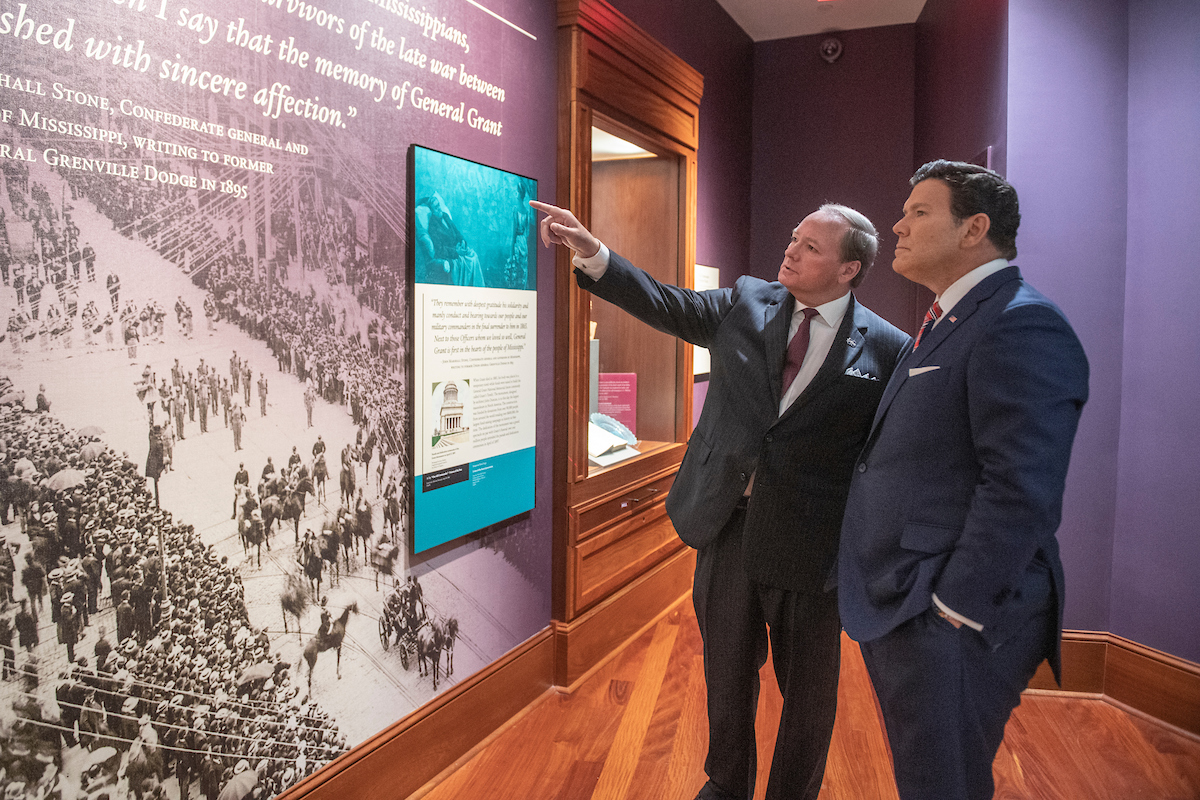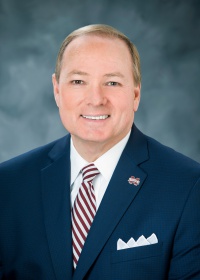
Dr. Mark Keenum
President
Mississippi State University
All three of your degrees are in agricultural economics from Mississippi State University. What cultivated your interest in AgEcon?
Like so many Mississippians, agriculture has always been a part of my life. My father grew up on his family’s small farm in the Delta, and he earned his degree in agriculture from Mississippi State. He built a long and successful career with the USDA. Through his job and promotions, our family was able to live in several different communities in our state and meet so many different people, and these experiences nurtured my early interest in agriculture. Agriculture and the economy were also going through many changes when I was growing up, and I knew understanding the economic forces driving these changes in farming and agribusinesses were essential to helping farm families and rural communities survive and thrive in the future. I wanted to be a part of that, and the Department of Agricultural Economics set me — as well as my classmates — on a course to make a difference.
How did your education in the College of Agriculture and Life Sciences at MSU prepare you for your professional career?
Whenever I speak to current or prospective students, I always let them know that they can do anything and go anywhere with a degree from Mississippi State University. That is certainly true in my own professional life. My time as a student on this campus prepared me for a successful career in public service in Washington, D.C., working with Senator Thad Cochran as his chief of staff and then serving as Under Secretary of the U.S. Department of Agriculture. It also prepared me to return to my alma matter as president and to lead this incredible institution during a time of great change across the higher education landscape, including an unprecedented pandemic. Throughout my career, I’ve worked alongside accomplished professionals with degrees from leading national and international universities, and I have always been so proud of how well my Mississippi State professors and mentors prepared me to meet challenges and take advantage of so many wonderful opportunities.
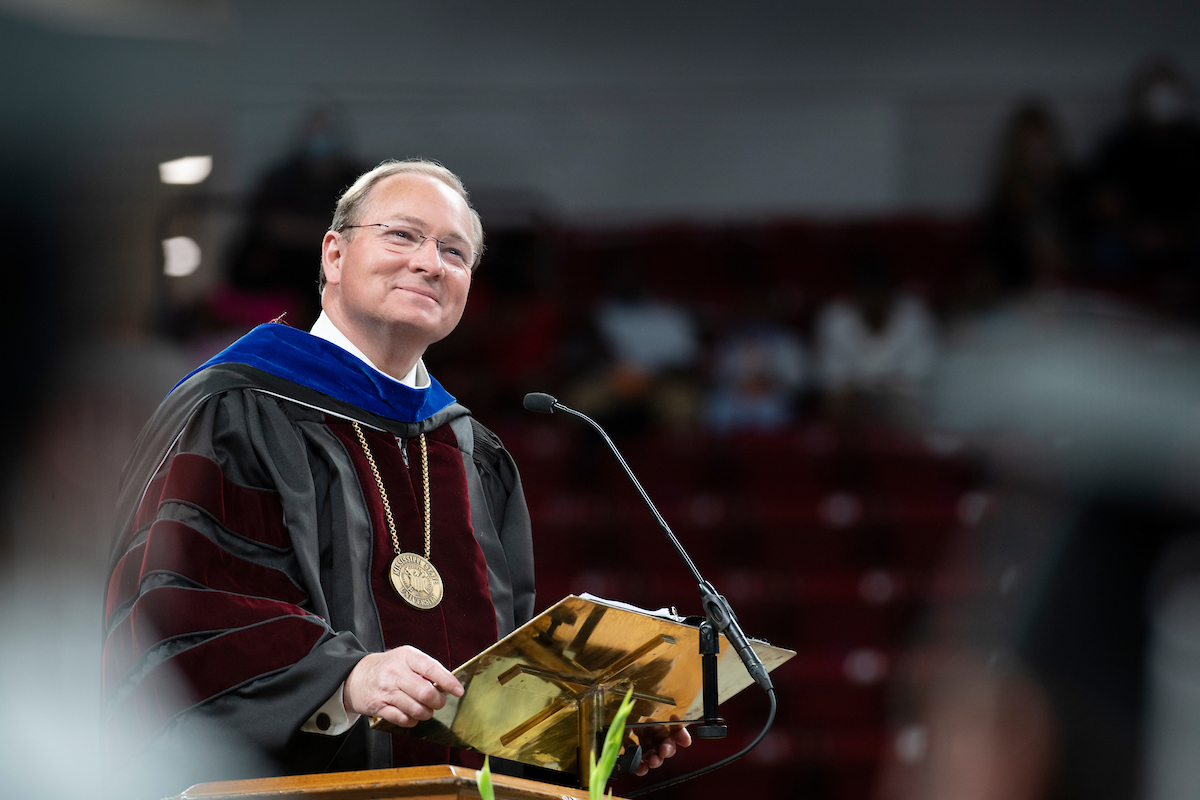
Your first job at Mississippi State was with the Extension Service and later with the Department of Agricultural Economics and the MS Agricultural and Forestry Experiment Station. What is one of your most memorable events from that job?
I was very fortunate to begin my career with the former Extension Agricultural Marketing Department. It gave me such a strong foundation for future success. I learned so much, but if I had to point to one of my most memorable experiences it would be developing the “Forest Product Market Bulletin” in 1986. I worked with Forestry Extension staff to create this resource so landowners would have meaningful and accurate price information to make good decisions. It was the first readily available, regularly published report with this kind of information covering a range of forest products. It continued to be published for many years, and I am very proud to have made this small contribution to our university’s efforts to serve the people of Mississippi.
You’ve served in several national positions related to agriculture, including the current chairman of the Foundation for Food and Agriculture Research. What are some of the biggest challenges facing agriculture that Mississippi State will play a role in solving?
Many of the challenges we face in agriculture are being magnified by a changing environment. However, unlike many industries, agriculture here at home and around the world has the ability to change and make improvements and to do so quickly. We can achieve this goal by investing in precision farming technology and practices. That’s what we’re doing at FFAR, and we are doing that here at Mississippi State as well. We have one of the fastest supercomputers in the United States right here on our campus. Our scientists are using this advanced technology to develop programs and best practices to increase the output of the plants and foodstuffs farmers grow here and around the world. We are also the nation’s leading university for drone research, and we have scientists using this technology to improve agricultural production. These uncrewed aircraft and their cameras and thermal-imaging sensors are helping farmers identify problems in the field and develop solutions to help them become more efficient. With the assistance of our scientists, including our students, they’re growing more and better crops and using fewer resources to do it.
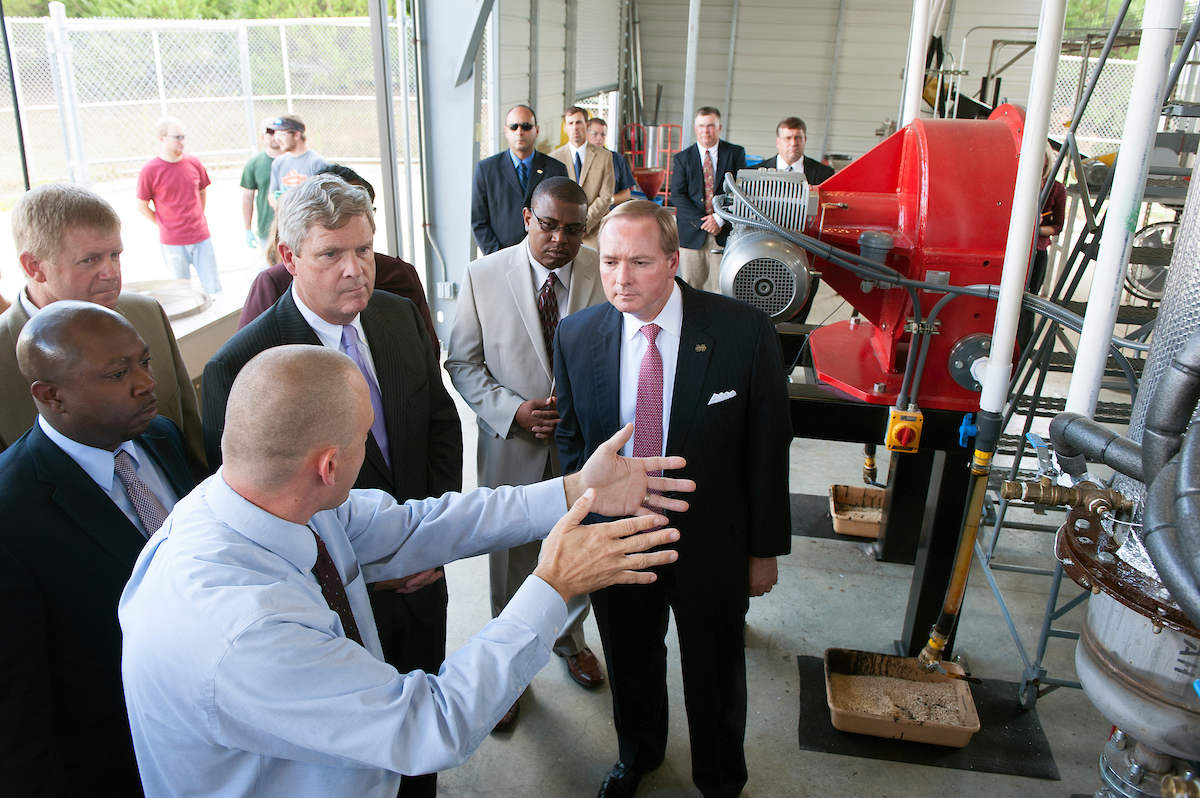
As a champion for global food security yourself, why is it important for Mississippi State to take the lead on solving world hunger while also fulfilling our land-grant mission?
There are few challenges greater than global food security, and our land-grant universities and especially Mississippi State University have been at the forefront of meeting such challenges. For example, we have strong and productive partnerships with USAID’s innovation labs and with the U.N.’s Food and Agriculture Organization (FAO). We’re recognized nationally and internationally for the work we are doing to enhance food security, reduce poverty, and expand opportunity. Of course, we are also working right here at home in every county of our great state. Food insecurity often begins in our own communities — for example, when a grocery store closes or a major employer shuts down. We want to help solve these problems, and as a leading research university and land-grant institution, we have a responsibility to do so.
During your tenure as MSU President, Mississippi State has seen record student enrollment, its first National Championship, and experienced major capital improvements. Where do we go from here?
More enrollment records, more National Championships, and more investments in major capital projects! In all seriousness, I have been very fortunate to lead this university during a remarkable time in our history. We have incredible momentum in so many different areas, and I think it’s because we have so many exceptional leaders across our campus. That includes strong and highly capable leaders among our students, our faculty, and our staff, as well as our alumni, who are so generous with their time and support. I enjoy working with so many different people who want to make Mississippi State University the best it can be. I think we are set to see even greater achievements in the years to come as long as we keep working together and stay focused on the success of our students. I believe our new Transforming MSU strategic plan and Taking Care of What Matters branding initiative will help us ensure that our university adapts to the ever-changing higher education landscape over the next few years as we look forward to celebrating our sesquicentennial in 2028.
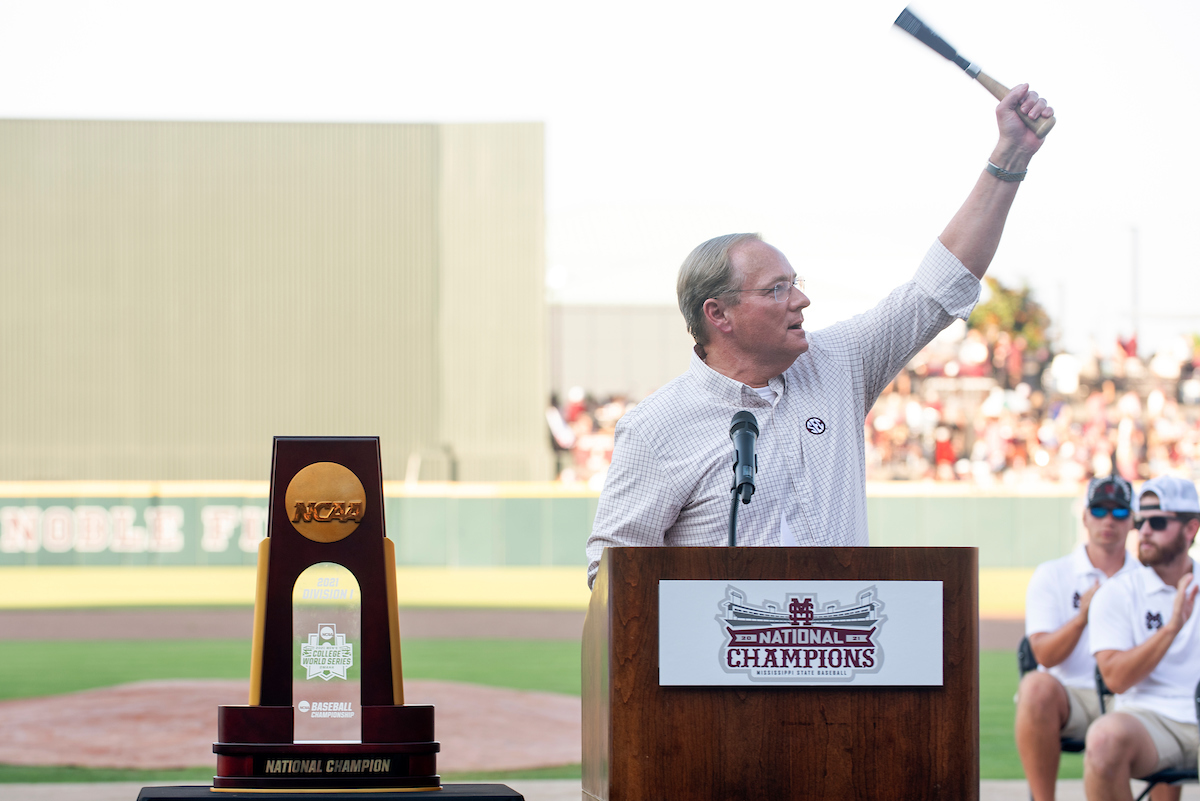
What advice do you give your own children that you would like to share with MSU students?
My faith is very important to me. In addition to my family and friends, faith and prayer are among the things that I am most thankful for. For me, my faith and my prayers are in the Christian tradition. As a Christian, I have a foundation. I believe that everyone needs a foundation. With our faith, comes great responsibility. Think about Matthew 5:16 — “In the same way, let your light shine before others, that they may see your good deeds and glorify your Father in heaven.” What an awesome responsibility that is. I’m far from perfect, and don’t always live up to this responsibility, but I try — and that is my foundation. Having a foundation is so essential, and that’s a message I share with my own children and our students. I also want them to understand and embrace the timeless values of integrity, hard work, and respect for all that are so important to us as individuals and as a university community. I also encourage my children and our students to get involved and be engaged with activities and organizations and other people. These experiences and relationships are so important and special.
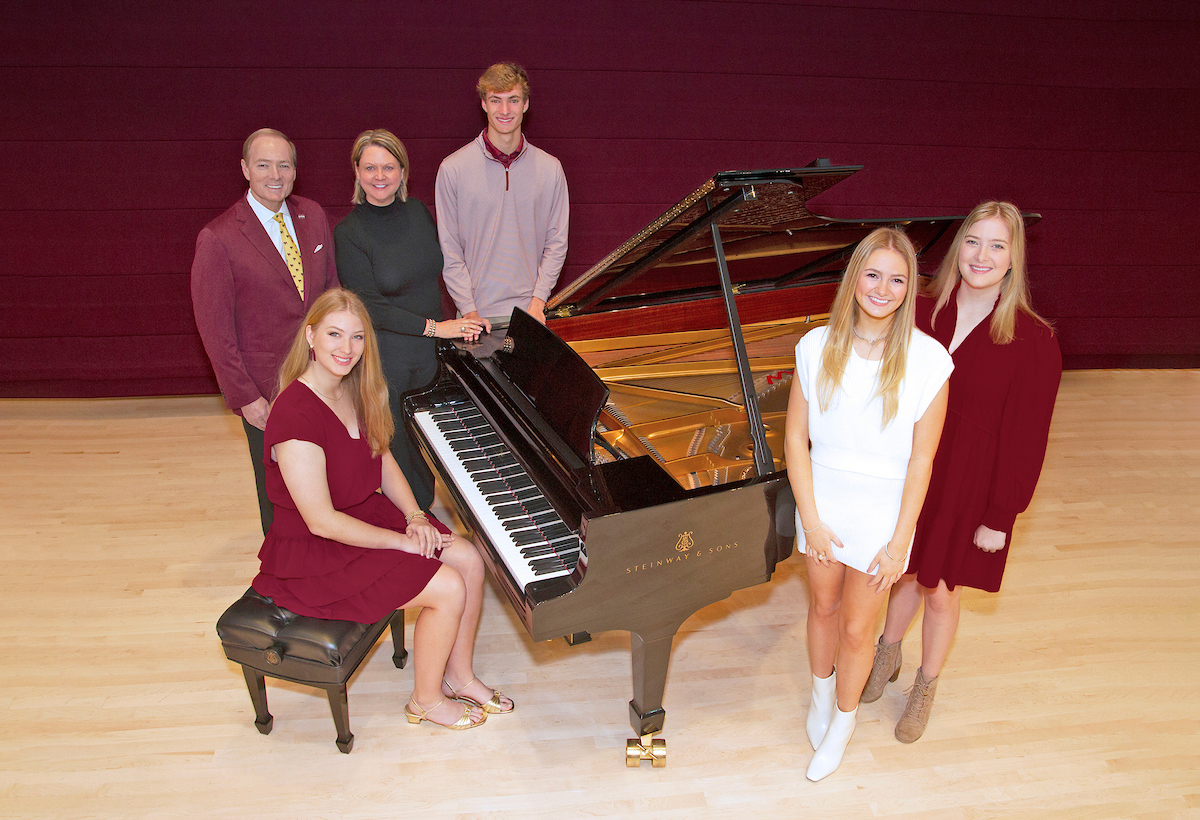
When you’re not working, what do you enjoy doing?
Rhonda and I love spending time keeping up with our children’s many activities — everything from band to basketball. We’re excited that our three oldest — Rett, Katie and Mary Phillips — are enjoying their senior year and will be continuing their educations at MSU this fall. And then our youngest Torie will be a high school senior, and so that will be a special and busy time. All of us enjoy supporting our student-athletes at MSU sporting events, as well as taking part in all of the many different activities and events on campus and in our growing and vibrant community. I also enjoy spending time reading, especially history — for which I have a great interest in and appreciation for as a trustee of the Mississippi Department of Archives and History.
